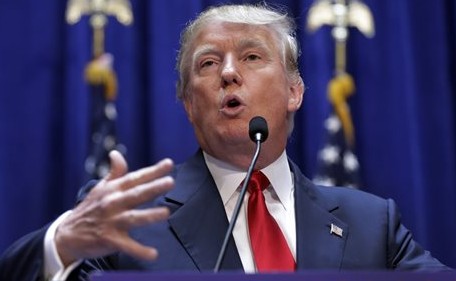With the biggest upset in the history of American presidential elections, economists worldwide are anxious to see what Donald Trump in the White House will mean to the global economy. For the Philippines, the negative impact of a Trump presidency has been pegged in business outsourcing, trade protectionism and immigration. The biggest concern is in the booming business process outsourcing (BPO) industry, which now employs 1.2 million Filipinos and generates more than $20 billion in revenues a year. During the US election campaign, Trump vowed to bring American jobs back home and threatened to tax US firms that would outsource jobs.
The protectionist stand of a Trump administration on US outsourcing could imperil the growth momentum of the Philippine BPO industry, where 8 of the top 10 BPO companies are US-based, warned Marvin Fausto, a fund manager at COL Financial and president of IFE Financial Advisers Inc. But it would take a lot to undo the outsourcing phenomenon. US companies brought some of their operations offshore for financial reasons: There is a huge gap between costs here and in America, which the Trump administration would find difficult to cover with subsidies from taxpayer money. Besides, Trump has bigger problems that would need big funding; fixing an aging US infrastructure system would most likely be his priority, and this alone could create millions of jobs for Americans.
Reverting to trade protectionism is another fear raised under President Trump. The tycoon-turned-politician promised during the campaign an “America First” policy, and lashed at what he described as disadvantageous trade agreements—the North American Free Trade Agreement (Nafta) and the yet-to-be-ratified Trans-Pacific Partnership. But being critical of the trade pacts does not mean America would just walk away from these under a Trump presidency. Simple economic sense says that America will be better off being a member of trade groups than closing itself from the outside world. The most that can possibly happen is for America to renegotiate the Nafta to narrow the gap between what it buys from its neighbors and what it sells to them. During the campaign, Trump’s camp indicated that what it really wanted was to “negotiate fair trade deals that create American jobs, increase American wages, and reduce America’s trade deficit.”
On immigration, while Trump vowed to prioritize the jobs, wages and security of Americans and establish new immigration controls to boost wages and to ensure that open jobs are offered to Americans first, he also promised to protect the economic wellbeing of the lawful immigrants to the United States.
There are other prospective Trump policies that will have an impact on the Philippines. In the energy sector, Trump promised to make America energy-independent: “Become, and stay, totally independent of any need to import energy from the Opec (Organization of Petroleum Exporting Countries) cartel or any nations hostile to our interests. Open onshore and offshore leasing on federal lands, eliminate moratorium on coal leasing, and open shale energy deposits. Encourage the use of natural gas and other American energy resources that will both reduce emissions but also reduce the price of energy and increase our economic output.” The net effect is that prices of crude oil will remain low. And low crude prices will be beneficial to the Philippines, which imports more than 90 percent of its oil requirements.
Thus, despite the fears now gripping the outside world, Trump the candidate will be different from Trump the president. He said many things while campaigning to attract voters. It will be different when he’s in the White House. His promised policies during the campaign will not necessarily be his policies when he takes office in January. Remember that many candidates say what’s popular, but do what’s practical or realistic when elected. But then again, as the saying goes, we should all hope for the best and prepare for the worst.
